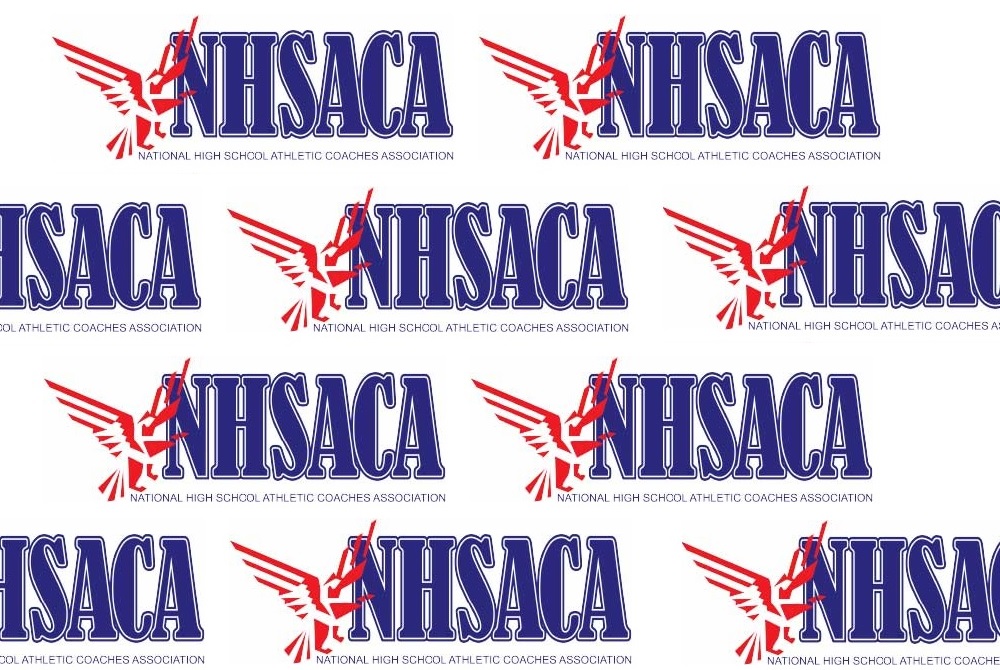
The More Things Change ...
December 20, 2013
By Rob Kaminski
MHSAA benchmarks editor
As we begin another calendar year, let's take a brief look at how the mission of school sports has (or hasn’t) changed since 1955, when former MHSAA Executive Director Charles E. Forsythe presented this practicum to the University of Michigan.
The following is an excerpt:
Presented by Charles E. Forsythe
Practicum in Physical Education
University of Michigan, Ann Arbor
Tuesday, June 21, 1955
WHY DO WE HAVE INTERSCHOLASTIC ATHLETICS IN OUR SCHOOLS?
 To meet the urge for competition which is a basic American tradition – let’s keep it.
To meet the urge for competition which is a basic American tradition – let’s keep it.- To provide a “whole school” interest and activity, bring in students other than athletes, enlist many student organizations.
- To teach students habits of health, sanitation, and safety.
- Athletics teach new skills and opportunities to improve those we have; this is basic educationally.
- To provide opportunities for lasting friendships both with teammates and opponents.
- To provide opportunity to exemplify and observe good sportsmanship which is good citizenship.
- Athletics give students a chance to enjoy one of America’s greatest heritages, the right to play and compete.
- One of the best ways to teach that a penalty follows the violation of a rule is through athletics.
- There must be an early understanding by students that participation in athletics is a privilege which carries responsibilities with it. Awarding school letter to a student is the second-highest recognition his school can give him – his diploma at graduation is the highest.
- To consider interscholastic athletic squad as “advanced” classes for the teaching of special skills – similar to bands, orchestras, school play casts, members of debating teams, etc. There is no reason why a reasonable amount of attention should not be given to such groups – as well as to those in the middle and lower quartiles in our schools. Both leaders and followers must be taught.
PHOTOS: (Top) Fans filled the arena for this MHSAA boys basketball tournament game. (Middle) Charles Forsythe served as the first executive director of the MHSAA.

3 Receive National Honors from NHSACA, Coaching Pair Named to Hall of Fame
By
Geoff Kimmerly
MHSAA.com senior editor
July 11, 2024
One of the longest-serving members of the MHSAA Representative Council and two longtime Michigan high school coaches have received highest honors this summer from the National High School Athletic Coaches Association.
Brighton athletic director John Thompson was named Athletic Director of the Year during the NHSACA’s annual conference June 26 in Bismarck, N.D. He has supervised the Bulldogs’ highly-accomplished athletic program for two decades and served on the Representative Council the last 14 years, including currently as vice president.
Thompson also this year received the Thomas Rashid Athletic Director of the Year Award from the Michigan Interscholastic Athletic Administrators Association (MIAAA). Brighton was selected as an MIAAA exemplary athletic program in 2015 and as an ESPN unified champion school in 2018, the latter recognizing its statewide leadership in cultivating unified sport opportunities.
Additionally, Farmington Hills Mercy girls golf coach Vicky Kowalski and Livonia Stevenson girls swimming & diving coach Greg Phil were named NHSACA National Coach of the Year in their respective sports.
Kowalski completed her 46th season coaching Mercy last fall by leading the program to its second-straight Lower Peninsula Division 2 championship and fourth MHSAA Finals title overall. She also in January was named the 2022-23 National Coach of the Year in her sport by the National Federation of State High School Associations (NFHS) Coaches Association. She was inducted into the Michigan High School Coaches Association (MHSCA) Hall of Fame this year for both golf and bowling.
Phil has coached girls swimming & diving since 1976, including at Stevenson since 1985. After winning the Kensington Lakes Activities Association East title, the most recent of several league championships under his leadership, Stevenson finished 16th at last season’s Lower Peninsula Division 1 Finals and previously had placed Finals runner-up twice. Phil was named to the MHSCA Hall of Fame in 2012.
All three honorees were nominated for the national recognition by the MHSCA. Beal City baseball coach Brad Antcliff, now-retired Leland volleyball coach Laurie Glass, Ann Arbor Greenhills boys tennis coach Eric Gajar and Lowell wrestling coach R.J. Boudro also were National Coach of the Year finalists.
Additionally, longtime softball coaches Kay Johnson of Morenci and Kris Hubbard from Ottawa Lake Whiteford were inducted into the NHSACA Hall of Fame. Johnson went over 1,000 career wins this spring and has led her program since 1993, including to Class C championships in 1985 and 1986. Hubbard retired after the 2019 season with an 865-380-3 record since taking over in 1974, with Class D titles in 1984, 1985 and 1987.

